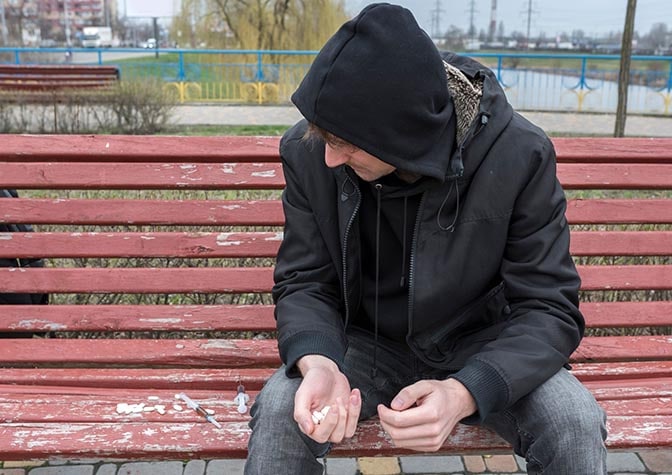Although methadone has legitimate medical purposes, being prescribed as both a pain reliever and a medication that can help people recover from opioid use disorders, some people do abuse methadone. If you think that your loved one is abusing methadone, you are undoubtedly frightened and concerned for their well-being. You may not even be sure what someone might take methadone for or how they can abuse it. This article will help you understand more about what methadone is, how it is used, signs of methadone abuse and addiction, and how to get help for your loved one.
What is Methadone Used for?
Methadone is an opioid sometimes used for pain management. Also, methadone is used to help people with opioid use disorders maintain recovery, in a process referred to as medication-assisted treatment. Methadone is a substitute for an illicit drug like heroin, or it is used to control opioid use disorder for prescription opioids like Vicodin. Methadone is a powerful medication, and while it is a critical tool in the recovery of many people with opioid use disorders, methadone does have definite potential for abuse as well.1
Can You Become Addicted to Methadone?
Methadone is an opioid, and like all opioids, it has the potential for addiction. When methadone is taken appropriately under a doctor’s supervision, you may become physically dependent on it, which means that you can go into withdrawal if you stop taking it. However, being physically dependent on methadone does not mean you have an addiction or an opioid use disorder. If you are addicted or have a use disorder, you will show signs of methadone abuse or addiction discussed below.
What Are the Side Effects of Methadone Withdrawal?
Methadone, like all opioids, can result in symptoms of withdrawal that include nausea, vomiting, diarrhea, sweating, gooseflesh, tremors, muscle aches, and pain. Other side effects of withdrawal include anxiety, agitation, and insomnia. Receiving a methadone detox under a doctor’s care can help manage these side effects and prevent any severe or unpleasant withdrawal outcomes.
What Are the Signs of Methadone Addiction?
Signs of methadone addiction are similar to addiction to any type of opioid. When a person is addicted to a substance, they will use it compulsively and do so despite any potential consequences that using the drug may cause. Addiction can include such behaviors as having cravings for methadone, taking more methadone than was prescribed, or taking it more often than is prescribed. Usually, if someone has methadone addiction, they lose interest in hobbies and things they enjoyed before. Instead, they spend their time looking for methadone, using methadone, and recovering from methadone. When a person has a methadone addiction, they may also be unable to fulfill their responsibilities at home, work, or school.
Another sign of possible methadone addiction is that a person may also use methadone in situations where it could be dangerous to do so, such as driving or operating heavy machinery. Frequently, another sign of addiction to methadone is increased family conflict around the use of methadone. Often, a person will develop a tolerance for methadone, which means they have to keep taking more and more methadone to get the same effect as a lower dose used to have on them. Additionally, you will see someone with methadone addiction continuing to use methadone despite knowing that using it causes a worse mental or physical condition. If your friend or family member uses methadone intravenously (IV), you may see signs of skin abscesses, needle marks, and unexplained bruising on their arms or legs, or feet, or you may find syringes and needles in their belongings. Often, people who use IV drugs become sick quickly, with pneumonia, heart infections, tuberculosis, contract hepatitis, or HIV.
What Are the Signs of Someone Abusing Methadone?
The signs of methadone abuse vary from one person to another. If you know that your loved one is being prescribed methadone, either for pain relief or for an opioid use disorder, you will often see that a person uses more than prescribed. They may call their doctor and ask for more pills before the prescription is due to be filled. Sometimes, you may discover that they are getting methadone from more than one doctor, taking a friend’s extra pills, or even buying it illegally.
Furthermore, employers may raise concerns about their behaviors and possible use of methadone. Employers may note that an employee is acting erratically, making careless mistakes, missing deadlines, and calling into work frequently. They may do well at work for a while, and then suddenly start performing poorly. They may have slurred speech or fall asleep at work. Of course, these behaviors could all be signs of other mental or medical conditions as well.
How Do I Know if Someone is Addicted to Methadone?
Although it may seem that some of these symptoms are easy to see, people are often good at hiding abuse of methadone and other drugs in the early stages of an opioid use disorder. If you observe signs of abuse or addiction, the only way to be sure is to get your loved one in for an assessment at a treatment center to determine if they need it.
How Do You Get Help for Someone Who is Abusing Methadone?
If you are looking for drug detox in Florida, Summer House can help you get the treatment that your loved one needs for methadone addiction. If you are looking for a Miami methadone treatment center, Summer House is conveniently located to help you. At Summer House, you will find detox services provided in a caring, comfortable, and home-like atmosphere, with medical oversight to ensure the safety of your loved one as they undergo detox.
Disclaimer: This post serves a strictly educational use. It does not reflect the services, products, or therapeutic approaches of this establishment or its healthcare practitioners. This blog aims not to advertise the products, services, or therapeutic approaches of any other establishment that may be associated with this site. On the subject of safe or legal services, products, and appropriate therapies, recommendations ought to be given by a qualified professional on a case to case basis.








